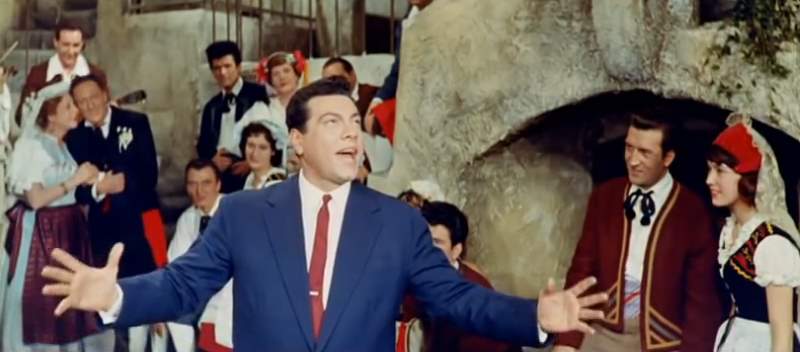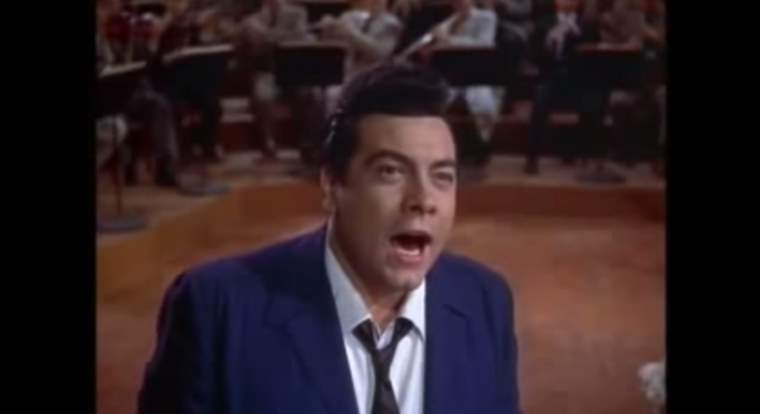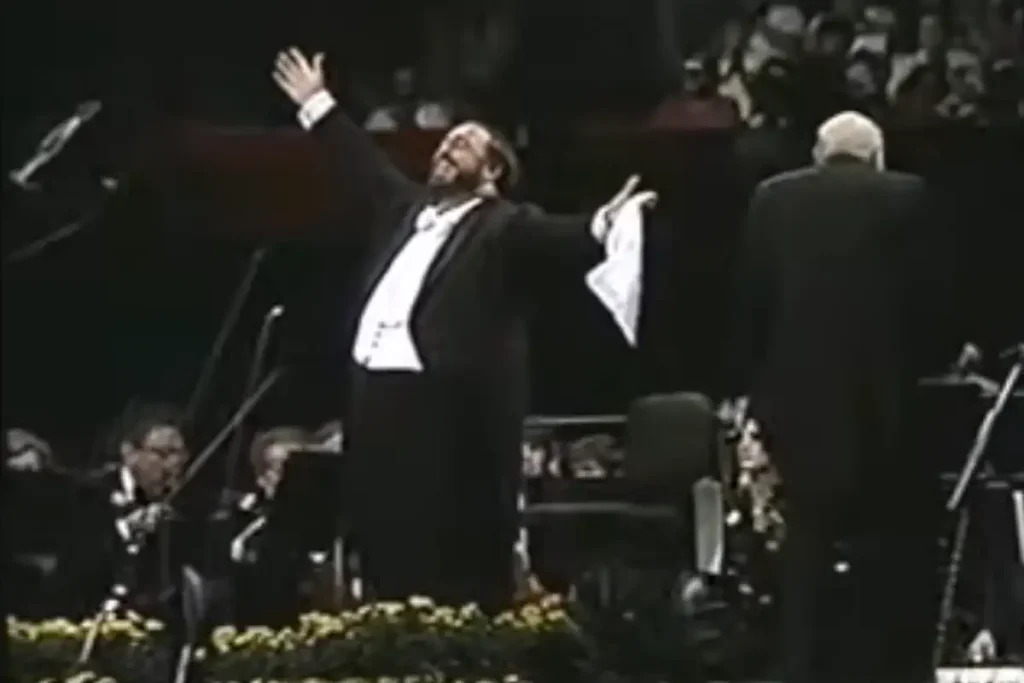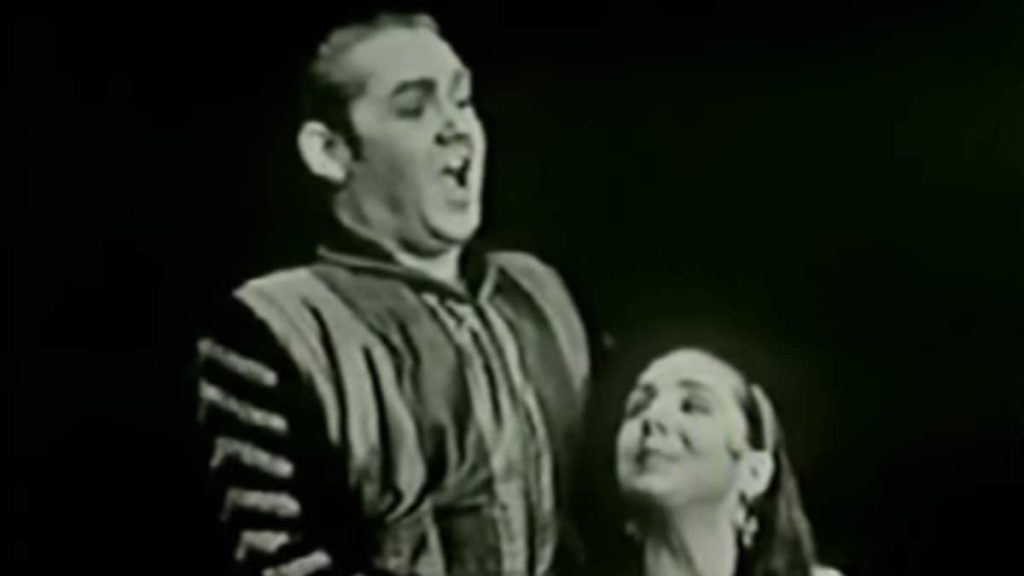American tenor and Hollywood film star of Italian origin, Mario Lanza sings “La donna è mobile”, the Duke of Mantua’s canzone from the beginning of act 3 of Giuseppe Verdi’s opera Rigoletto (1851). Clip from The Great Caruso, a 1951 biographical film made by Metro-Goldwyn-Mayer and starring Mario Lanza as the great Italian tenor Enrico Caruso.
La Donna è Mobile
The inherent irony is that the Duke, a callous playboy, is the one who is mobile (“inconstant”). Its reprise towards the end of the opera is chilling, as Rigoletto realizes from the sound of the Duke’s lively voice coming from within the tavern (offstage), that the body in the sack over which he has grimly triumphed is not that of the Duke after all: Rigoletto had paid Sparafucile, an assassin, to kill the Duke but Sparafucile deceived him by killing Gilda, Rigoletto’s beloved daughter, instead.
The canzone (meaning song or ballad in English) is famous as a showcase for tenors. Raffaele Mirate’s performance of the bravura aria at the opera’s 1851 premiere was hailed as the highlight of the evening. Before its first public performance (in Venice), it was rehearsed under tight secrecy: a necessary precaution, because it proved to be catchy, and soon after its first public performance, every gondolier in Venice was singing it.
The Great Caruso

The Great Caruso is a 1951 biographical film made by Metro-Goldwyn-Mayer and starring Mario Lanza (January 31, 1921 – October 7, 1959) as the great Italian tenor Enrico Caruso (25 February 1873 – 2 August 1921).
Though the film followed the basic facts of Enrico Caruso’s life, the story was largely fictional. Members of the Caruso family in Italy successfully sued the production company Metro-Goldwyn-Mayer (MGM) for damages because of this.

Related: Mario Lanza sings ‘O Sole Mio
La Donna è Mobile Lyrics
Italian
La donna è mobile
Qual piuma al vento,
muta d’accento
e di pensiero.
Sempre un amabile,
leggiadro viso,
in pianto o in riso,
è menzognero.
Refrain
La donna è mobil’.
Qual piuma al vento,
muta d’accento
e di pensier’!
È sempre misero
chi a lei s’affida,
chi le confida
mal cauto il core!
Pur mai non sentesi
felice appieno
chi su quel seno
non liba amore!
Refrain
La donna è mobil’
Qual piuma al vento,
muta d’accento
e di pensier’!
Prosaic translation
Woman is flighty.
Like a feather in the wind,
she changes in voice
and in thought.
Always a lovely,
pretty face,
in tears or in laughter,
it’s untrue.
Refrain
The woman is flighty.
like a feather in the wind,
she changes in voice
and in thought!
Always miserable
is he who trusts her,
he who confides in her
his unwary heart!
Yet one never feels
fully happy
who from that bosom
Does not drink love!
Refrain
The woman is flighty.
Like a feather in the wind,
she changes her words,
and her thoughts!
Poetic translation
Plume in the summerwind
Waywardly playing
Ne’er one-way swaying
Each whim obeying;
Thus the heart of womankind
Ev’ry way bendeth,
Woe who dependeth
On joy she spendeth!
Refrain
Yes, the heart of a woman
Ev’ry way bendeth
Woe who dependeth
On joy she spends.
Sorrow and misery
Follow her smiling,
Fond hearts beguiling,
falsehood assoiling!
Yet all felicity
Is her bestowing,
No joy worth knowing
Is there but wooing.
Refrain
Yes, the heart of a woman
Ev’ry way bendeth
Woe who dependeth
On joy, she spends.

Related: Mario Lanza sings “Nessun Dorma”
Sources
- The Great Caruso on Wikipedia
- La donna è mobile on Wikipedia


